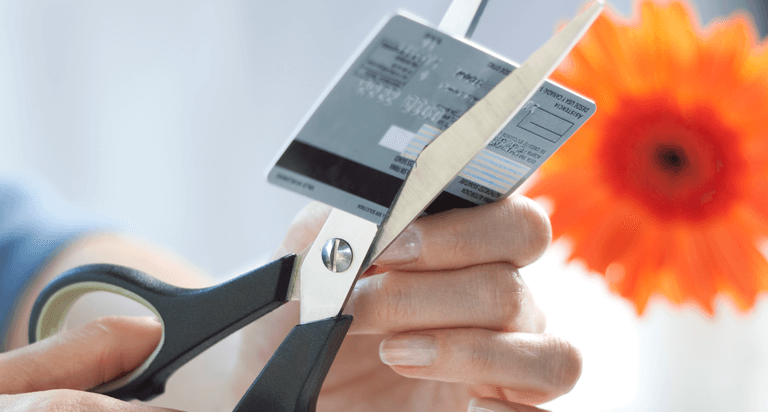What is a Chargeback?


Highlights:
- A chargeback occurs when a debit or credit card issuer reverses a transaction in response to a customer dispute involving: fraudulent charges, billing errors or other legitimate complaints.
- You may qualify for a chargeback under various circumstances, including: if you have fraudulent or unauthorized charges on your account, or if the goods you purchased are missing or faulty.
- If you believe you have a valid claim for a chargeback, file a dispute with your card issuer. If your dispute is approved, the charge in question will be refunded to your account.
Have you ever noticed an unauthorized charge on your debit or credit card billing statement? If so, you may be eligible for a chargeback. Chargebacks allow consumers to recover the money they have been charged that has been lost to fraud, deceptive business practices and even simple billing errors.
What is a chargeback?
A chargeback occurs when a card issuer reverses a transaction in response to a customer dispute involving: fraudulent charges, billing errors or other legitimate complaints. For example, chargebacks may also be awarded if the customer is dissatisfied with the quality of goods or services delivered. They can be especially useful in cases where a retailer declines to issue a traditional refund.
How does a chargeback work?
If you believe you have a valid claim for a chargeback, you must first dispute the charge. When your card issuer receives the dispute, they typically launch an investigation between you, the merchant, the merchant's bank and any payment processing networks like Visa® or Mastercard®.
Then, your card issuer consults with the retailer's bank to determine if the dispute is legitimate and decide which party will pay for the charge. Meanwhile, you may receive a temporary credit in your account. If your dispute is approved, your funds will be returned permanently. If your dispute is denied, the temporary credit will be removed and your funds from the initial charge will generally remain with the merchant.
What is the difference between a chargeback and a refund?
Both chargebacks and refunds return money to your account from a previous purchase. Chargebacks are processed and approved through your card issuer. Refunds, on the other hand, are issued directly by the retailer. Depending on the retailer's policy, some refunds may result in a store credit rather than a cash refund to your account.
When to ask for a chargeback
You may qualify to dispute a charge when you experience any of the following:
- Fraudulent charges
- Unauthorized charges
- Inaccurate charges
- Damaged or faulty goods
- Missing goods
Card issuers are generally most willing to grant chargebacks in cases of fraudulent transactions. If you think the retailer is likely to grant you a traditional refund, it's often in your best interest to request one before filing a dispute.
How to file a chargeback
If a refund isn't an option, filing a chargeback dispute is generally a straightforward process for the consumer.
- Gather evidence to support your case. Before you submit your dispute, collect any documents that can support your claim, including: receipts, invoices and proof of written communications between you and the retailer.
- File a chargeback dispute. Most card issuers allow you to submit a chargeback request by phone, by mail or online. You should dispute the charge within 60 days of billing.
- Wait. Allow your card issuer time to investigate. They'll contact all parties, including the merchant and the merchant's bank. If your dispute is declared legitimate, you'll receive your permanent refund within 90 days, as required by federal law. If your request is denied, you'll receive written notice of the decision, but you may subsequently file an appeal.
What is chargeback fraud?
Although chargebacks help protect consumers from errors and deceitful retail practices, the process can be abused. Customers may, intentionally or unintentionally, dispute legitimate transactions in order to receive goods and services for free.
Known as friendly fraud or chargeback fraud, this practice can be expensive for retailers. Falsely disputed charges can double the cost of the original transaction due, in part, to fees levied by card issuers. It can also hurt a business's bottom line by driving up its chargeback ratio, resulting in even more fees and penalties.
How businesses handle chargeback fraud
Chargeback insurance and fraud protection technology can offer a degree of chargeback fraud defense for businesses, and businesses also have the option to fight back.
If a retailer suspects they may be a victim of chargeback fraud, they can challenge the customer's dispute during the chargeback investigation. To successfully dispute a chargeback, the business needs to provide documentation. Invoices, customer signatures, proof of delivery and written correspondence can act as powerful evidence in the retailer's favor.
Chargebacks remain an important consumer protection tool that allows consumers to get their money back for fraudulent charges or purchases not received by submitting a dispute with their card issuer. If you know when and how to dispute a charge, you can protect yourself, your credit history and your hard-earned cash.
Get your free credit score today!
We get it, credit scores are important. A monthly free credit score & Equifax credit report are available with Equifax Core CreditTM. No credit card required.



